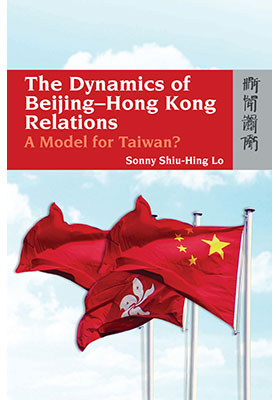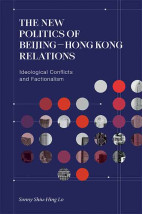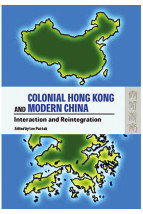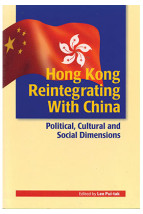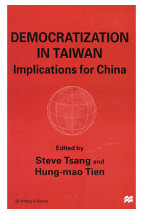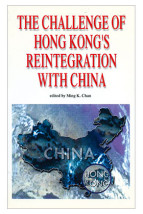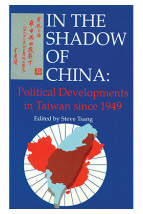The Dynamics of Beijing–Hong Kong Relations
A Model for Taiwan?
(北京與香港的關係角力: 臺灣的典範?)
ISBN : 978-962-209-909-8
April 2008
344 pages, 6″ x 9″, 14 tables
Ebooks
This book critically assesses the implementation of the “one country, two systems” in the Hong Kong Special Administrative Region (HKSAR) from the political, judicial, legal, economic and societal dimensions.
The author contends that there has been a gradual process of mainlandization of the HKSAR, meaning that Hong Kong is increasingly economically dependent on the People’s Republic of China (PRC), politically deferent to the central government on the scope and pace of democratic reforms, socially more patriotic toward the motherland and more prone to media self-censorship, and judicially more vulnerable to the interpretation of the Basic Law by the National People’s Congress.
This book aims to achieve a breakthrough in relating the development of Hong Kong politics to the future of mainland China and Taiwan. By broadening the focus of the “one country, two systems” from governance to the process of Sino-British negotiations and their thrust-building efforts, this book argues that the diplomats from mainland China and Taiwan can learn from the ways in which Hong Kong’s political future was settled in 1982–1984. This is a book for students, researchers, scholars, diplomats and lay people.
“This splendid book offers a vivid analytical delineation of the multi-faceted PRC central authorities–Hong Kong SAR interactive dynamics under the ‘one country, two systems’ formula. Illuminating this problematic center-region relationship with detailed case studies, Professor Lo’s insightful work highlights the potentials as well as the limitations of this formula as actualized in Hong Kong to facilitate cross-Strait detente toward Beijing’s much-cherished peaceful unification with Taiwan. Keen observers of Greater China development will benefit much from his masterful evaluation of the HKSAR experience’s larger external strategic implications.” —Ming K. Chan, Research Fellow, Hoover Institution, Stanford University
“This book by a distinguished political scientist is an in-depth study of the travail of two cities—absolutist Beijing and pluralist Hong Kong—during the crucial first decade of the HKSAR. Its incisive analysis of Hong Kong politics also provides a rich feast for thought on issues spanning the Taiwan Strait.” —Bernard Luk, Professor, History Department, York University, Canada
“The most systemic analyses of the development of Hong Kong and its relationship with Beijing in the post-handover decade, with a thoughtful reference to Taiwan. Theoretically provocative and empirically rich, a must read for those concerned for the future of Hong Kong, Taiwan, and China.” —Quansheng Zhao, Professor and Division Director, Comparative and Regional Studies, Director of Center for Asian Studies, American University, Washington, DC
“Sonny Lo’s book is a remarkable tour de force of the ‘one country, two Systems’ actualization in Hong Kong. It presents a detailed overview of the interactions between the Beijing government and the HKSAR in the past decade as well as new political dynamics shaping Hong Kong’s future. It is particularly interesting to read Lo’s provocative exploration of the applicability of the Hong Kong model to Taiwan. A must read for anyone interested in the political dynamics of mainland China, Hong Kong, and Taiwan in the 21st century.” —Suisheng Zhao, Professor of International Studies, University of Denver and Editor of the Journal of Contemporary China

